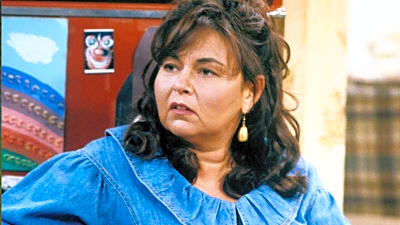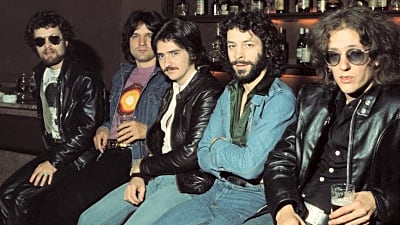- Home
- Quizzes
- My Quiz Activity
- Newsletters
- MY FAVORITES
- Add Sports/Teams
- SPORTS
-
NFL
- NFL Home
- Arizona Cardinals
- Atlanta Falcons
- Baltimore Ravens
- Buffalo Bills
- Carolina Panthers
- Chicago Bears
- Cincinnati Bengals
- Cleveland Browns
- Dallas Cowboys
- Denver Broncos
- Detroit Lions
- Green Bay Packers
- Houston Texans
- Indianapolis Colts
- Jacksonville Jaguars
- Kansas City Chiefs
- Las Vegas Raiders
- Los Angeles Chargers
- Los Angeles Rams
- Miami Dolphins
- Minnesota Vikings
- New England Patriots
- New Orleans Saints
- New York Jets
- New York Giants
- Philadelphia Eagles
- Pittsburgh Steelers
- San Francisco 49ers
- Seattle Seahawks
- Tampa Bay Buccaneers
- Tennessee Titans
- Washington Commanders
-
MLB
- MLB Home
- Athletics
- Arizona Diamondbacks
- Atlanta Braves
- Baltimore Orioles
- Boston Red Sox
- Chicago White Sox
- Chicago Cubs
- Cincinnati Reds
- Cleveland Guardians
- Colorado Rockies
- Detroit Tigers
- Houston Astros
- Kansas City Royals
- Los Angeles Angels
- Los Angeles Dodgers
- Miami Marlins
- Milwaukee Brewers
- Minnesota Twins
- New York Yankees
- New York Mets
- Philadelphia Phillies
- Pittsburgh Pirates
- San Diego Padres
- San Francisco Giants
- Seattle Mariners
- St. Louis Cardinals
- Tampa Bay Rays
- Texas Rangers
- Toronto Blue Jays
- Washington Nationals
-
NBA
- NBA Home
- Atlanta Hawks
- Boston Celtics
- Brooklyn Nets
- Charlotte Hornets
- Chicago Bulls
- Cleveland Cavaliers
- Dallas Mavericks
- Denver Nuggets
- Detroit Pistons
- Golden State Warriors
- Houston Rockets
- Indiana Pacers
- Los Angeles Clippers
- Los Angeles Lakers
- Memphis Grizzlies
- Miami Heat
- Milwaukee Bucks
- Minnesota Timberwolves
- New Orleans Pelicans
- New York Knicks
- Oklahoma City Thunder
- Orlando Magic
- Philadelphia 76ers
- Phoenix Suns
- Portland Trail Blazers
- Sacramento Kings
- San Antonio Spurs
- Toronto Raptors
- Utah Jazz
- Washington Wizards
-
NHL
- NHL Home
- Anaheim Ducks
- Boston Bruins
- Buffalo Sabres
- Calgary Flames
- Carolina Hurricanes
- Chicago Blackhawks
- Colorado Avalanche
- Columbus Blue Jackets
- Dallas Stars
- Detroit Red Wings
- Edmonton Oilers
- Florida Panthers
- Los Angeles Kings
- Minnesota Wild
- Montreal Canadiens
- Nashville Predators
- New Jersey Devils
- New York Islanders
- New York Rangers
- Ottawa Senators
- Philadelphia Flyers
- Pittsburgh Penguins
- San Jose Sharks
- Seattle Kraken
- St. Louis Blues
- Tampa Bay Lightning
- Toronto Maple Leafs
- Utah Mammoth
- Vancouver Canucks
- Vegas Golden Knights
- Washington Capitals
- Winnipeg Jets
- NCAAF
- NCAAM
- Olympics
- Boxing
- Entertainment
- Lifestyle
- Golf
- MMA
- Soccer
- Tennis
- Wrestling
- Sports Betting
- More Sports
- RESOURCES
- My Account
- YB on Facebook
- YB on Twitter
- YB on Flipboard
- Contact Us
- Privacy Policy
- Terms of Service

25 awesome albums from otherwise awful artists
Not every musician in the world is destined for success, and far few achieve anything resembling greatness. Yet while OK Go, for example, is best known for music videos over music, the band's spiky debut still holds a lot of charm. Hanson is far from a "great" act but its breakthrough, "Middle of Nowhere," still was the soundtrack to the lives of a generation of tweens, and those songs evoke a specific nostalgia. Macklemore & Ryan Lewis may have a contentious legacy in the realm of rap music, but none of that debate circles around the fact that "Can't Hold Us" still bangs.
So while not every artist will stand the test of time — and a few inspire outright derision when their names are mentioned — some of them still have put out some solid records. Maybe it was a flash in the pan moment, or maybe it was a critical success crafted away from the spotlight (or even the charts), but today we're listing some truly great albums from some artists with less-than-great careers. (And for those keeping track, picking a Greatest Hits album, as we all know, would be a total cop-out.)
Hootie & the Blowfish - "Cracked Rear View" (1994)
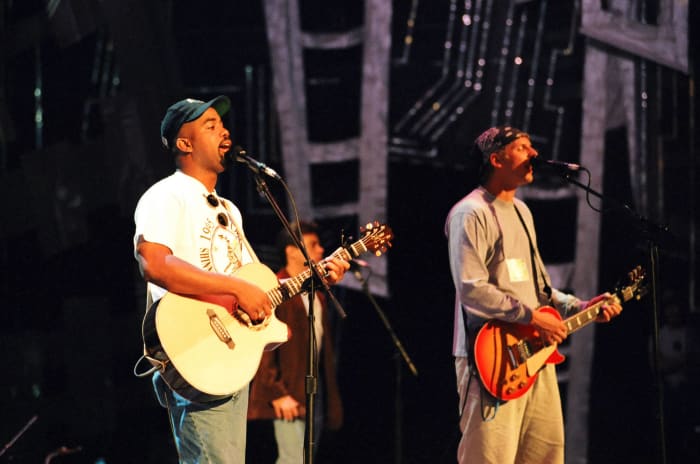
Following the grunge explosion of the early '90s, it was inevitable that there would be some type of counter-programming, and with the likes of Sheryl Crow and Matchbox Twenty leading the charge, radio soon acquiesced to a pleasant, MOR pop-rock sound. The leader of this movement, however, was a little-known South Carolina band named Hootie & the Blowfish, who exploded onto the scene with "Cracked Rear View." With old-school organs, acoustic guitars, and slick production, Darius Rucker's sturdy-voiced ballads and pop numbers connected California kids to Midwest families, creating a kind of universal midrange sound that ended up making songs like "Hold My Hand," "Only Wanna Be with You" and "Let Her Cry" omnipresent radio staples. The only problem with this winning formula? Finding a follow-up. Every subsequent album was a case of diminishing returns, showing that for all its bluster, Hootie was only a one-album wonder. (But give some credit to Rucker for going solo, going country, and still finding success on his own.)
Chumbawamba - "Tubthumper" (1997)
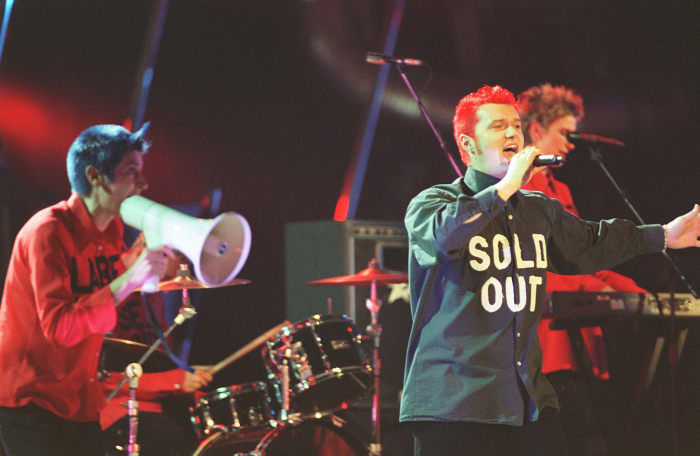
The British group Chumbawamba has been around since the early '80s, and its political- and musical-aesthetic can only be described as downright anarchistic, switching wildly between styles and genres while putting out albums titled "Pictures of Starving Children Sell Records." The band's albums vary wildly in quality and tone, but on the commercial breakthrough, "Tubthumper," everything fell into place. Sure, you can have a whiskey drink and a vodka drink to enjoy the big hit "Tubthumping," but this record contains a multitude of great, bizarre alt-pop experiments, ranging from the shoulda-been-a-smash that is "Amnesia," the drum-and-synth smoothness of "Drip, Drip, Drip," the drum-and-bass experiment of "The Good Ship Lifestyle" and numerous other electronic numbers that were fitting for the era and still, surprisingly, hold up today for the most part. Feel free to explore the wild recesses of the rest of the catalog, but also know that "Tubthumper" is the sound of a band putting out its best effort at the perfect moment.
Miley Cyrus - "Bangerz" (2013)

We will be the first to admit that in terms of Miley Cyrus records, 2008's first true-and-proper non-Hannah Montana album, has more polish. Yet "Bangerz," Cyrus' twerk-happy, star-making media sensation of a record, is probably the most authentically "Miley." Taking the reins of her career and doing whatever the damn hell she feels like, "Bangerz" shows her collaborating with rap producers like Mike Will Made-It and Pharrell to craft a trashy party record that has occasional — and surprising — moments of heart. While "We Can't Stop" and "Wrecking Ball" were the mega-hits, it's smaller moments like the goofy Britney Spears romp "SMS" and the lo-fi ho-down "4x4" that really give "Bangerz" its own distinct identity. Before and after this album, Cyrus' tones ranged from almost-goth-pop to babbling stoner to semi-country-balladeer. But with "Bangerz," it felt like every shard of her personality was contained in one wild, rambunctious and deliberately overstuffed mess of a record that's impervious to any critical whippings.
Sinéad O'Connor - "I Do Not Want What I Haven't Got" (1990)

Sinéad O'Connor's discography is an unwieldy beast, zigging exactly when you expect it to zag, following up superstar success with a full-blown jazz orchestra record and then veering into a record full of reggae covers and, on occasion, trying to reclaim the pop-rock sphere for her own. It's a wild journey, but following the bare-bones production of her 1987 debut, "Lion and the Cobra," O'Connor finds her voice on "I Do Not Want What I Haven't Got," giving folk-ballad vocals over hip-hop beats and crafting a sound that would go on to help define a lot of '90s pop music. Indie in aim but pop in approach, "I Do Not Want..." is a sturdy rock record that's unafraid to highlight O'Connor's utterly distinct voice. Of course, "Nothing Compares 2 U" is the smash, but the rollicking "The Emperor's New Clothes" and absolutely biting "You Cause as Much Sorrow" proved that O'Connor had powerful songwriting chops that, sadly, got overshadowed by her public antics. Her discography may be confusing as all get-out, but at the very least, she will always be remembered for giving us one shining, powerful rock record.
Limp Bizkit - "Significant Other" (1999)

In the sludgy, dreary days of early rap-rock and nu-metal in the late '90s, Limp Bizkit stood out, initially for its bro-rock laments but even more explicitly for a unique sense of humor, as not many bands could release a cover of George Michael's "Faith" as a single and turn it into a hit. So for Limp Bizkit's sophomore album, the band hit the bullseye, capturing what everyone loved and everyone hated about the subgenre in one fell swoop. There was no entry level to clear: You knew the hooks and riffs to songs like "Nookie" and "Break Stuff" instantly, and album tracks like "Nobody Like You" and "I'm Broke" told you everything you needed to know about them within the first 10 seconds. Catchy on first listen and built with remarkable staying power, the Bizkit even flashed instances of genuine artistry, like on the powerful classic "Re-Arranged." Since then? The group simply became a parody of itself, losing and then regaining guitarist Wes Borland, as the band kept releasing music to fans who still have fond memories of the Family Values Tours of yore.
Katy Perry - "Teenage Dream" (2010)

There was a time when it seemed like Katy Perry was going to be the kind of pop star whowould last for decades. Her 2008 true-and-proper debut album, "One of the Boys," was a mixed bag but still featured giant bubbly pop confections. Yet when 2010's "Teenage Dream" hit, it felt like her rhinestoned-fingernails were on the pulse of radio, giving the world an album that simply couldn't stop spitting out chart-topping singles, ranging from "Firework" to "California Gurls" to the memorable title track. Since then? Katy began releasing increasingly confused new records that lacked the polish and spark that "Teenage Dream" had, bottoming out with the regrettable and forgettable "Witness" in 2017. She has dropped a series of attempted comeback singles since then, most of which have gone on to tilt the scales away from her 2010 triumph, having now put out more bad pop songs than good ones. It's a good thing she's got a recurring gig on "American Idol" because this is a rare occasion where we wouldn't advise her to stick to her day job anymore.
50 Cent - "Get Rich or Die Tryin'" (2003)
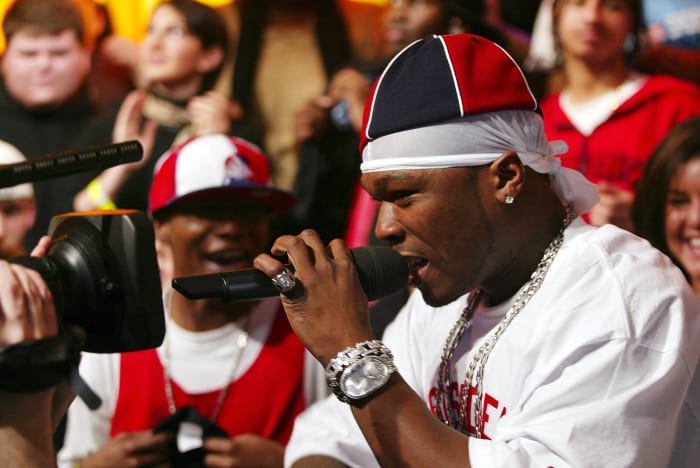
Is 50 Cent a particularly gifted lyricist? No. But what Fiddy was able to sell to the world was genuine swagger, giving the gangster rap genre a braggadocious shot in the arm that had been missing from the game for years. While the singles "In Da Club" and "21 Questions" were massive proclamations of a brand new star, the rest of the album — both on the tracks produced by Dr. Dre and even the ones that weren't — used simple piano samples and backbeats to lay down an accessible path to 50 Cent's world of gunshots, hood life while ruling any club he walks into. At times, Fiddy even managed to get in some insightful cultural commentary (like on his place in a white man's world in "Patiently Waiting"), but after this record turned him into a superstar, every subsequent full-length was more of the same. His persona was so fierce on "Get Rich or Die Tryin'" that when he did the same level of posturing on every new release, it simply felt more and more like a schtick. Nowadays, 50 Cent feels more like a relic of an older era, incapable of moving on when all of his peers did. He might not have as much power as he used to, but at least he's got "Power."
B.o.B. - "B.o.B Presents: The Adventures of Bobby Ray" (2010)

Bobby "B.oB." Ray, if anything, is absurdly prolific, often turning out multiple albums or EPs in any given year. He's not an especially dynamic performer, but during one shining moment in 2010, he felt like the next big thing in pop-rap, with his Bruno Mars, Rivers Cuomo and Hayley Williams features all becoming instant radio staples. The rest of "The Adventures of Bobby Ray" proved wildly entertaining, featuring guest spots with everyone from Janelle Monáe to Lupe Fiasco with the occasional rock detour to break up his pop-rap schema. Since then? Woof. B.o.B. simply wasn't able to re-capture that level of success, his weak rhymes making him a bad guest for features and his beef with Neil deGrasse Tyson over his flat-Earther beliefs further regulating him to the realm of a novelty act. B.o.B. may be struggling for relevance nowadays, but for a brief shining moment, he was the brightest star on Top 40 radio.
Kings of Leon - "Only by the Night" (2008)

Immediately after the garage rock revival of the early 2000s, Southern rock had a bit of a comeback, with groups like Kings of Leon and My Morning Jacket reminding folks that the Lynyrd Skynyrd template still had life in it yet. Yet when My Morning Jacket went psychedelic, Kings of Leon decided to become alt-rock kingpins, perfecting their art with their fourth album, "Only By the Night." From "Sex on Fire" to the anthemic "Use Somebody" to the shuffling "Revelry," Kings of Leon became the Kings of Rock Radio at the time, but they were especially embraced in the U.K., churning out hits and winning awards at a rapid-fire pace. Since then? The group's sound has been diluted into generic rock poses and tired templates, with vocalist Caleb Followill's accent yowl even losing some of its grit as time went on. Nowadays Kings of Leon is writing songs safe enough for your high school prom and featuring none of the bite that once made this band so utterly distinct in the rock landscape.
Justin Bieber - "Purpose" (2015)

If we're being honest with the Beliebers out there, Justin was always more of a singles artist than an album one, capable of delivering immediate catchy pop (or at least a killer feature hook) but rarely crafting an album (or soundtrack or Music Mondays compilation) that was wholly satisfying. So after years as the media's whipping boy (and let's be real, he provoked a lot of it), a surprising guest spot on a Jack U song introduced the world to "mature" Justin, and his contemplative turn checked off a lot of boxes that he wasn't checking before. Repentant, stoic and heartfelt, Bieber 2.0 felt like a true artistic progression, and if anyone should own any single Bieber album, it's "Purpose." Skrillex proves an able pop producer with his spectacular dancehall hit "Sorry," but other tracks like the slippery "What Do You Mean?" and the seriously underrated groove of "Company" are the sounds of Bieber rejuvenated and finding his true artistic voice. Sure, there are a few problematic moments ("Children" chief among them), but overall, throughout all his full-lengths and his seemingly infinite guest spots, the Bieber of "Purpose" is hands down the best Bieber.
Nelly - "Nellyville" (2002)

Nelly exploded onto the scene with his 2000 debut, "Country Grammar," but many hip-hop purists questioned his skills as a rapper despite his mega-platinum success. With his sophomore effort, "Nellyville," he dismissed his haters simply by going supernova, dropping a delirious run of crossover smashes that endeared as eternal party starters ("Hot in Herre") and endearing pop ballads ("Dilemma"). Yet what separated "Nellyville" was just how gloriously weird it was, like during "Pimp Juice" when he expresses how desirable he is by noticing a girl "wants to put your feet on my rug, don'tcha?" The guest spots were solid, the horns on "Splurge" are ace, and Nelly never, ever quite captured this level of success ever again. He had occasional one-off hits here and there, but a pop-rapper of Nelly's caliber wasn't meant for a lasting legacy, soon getting hits only by showing up on Florida Georgia Line songs. Oh, how the mighty have fallen.
Lupe Fiasco - "Lupe Fiasco's Food & Liquor" (2006)

2006 was Lupe Fiasco's year, launching with the breezy, orchestral single "Kick, Push" and getting featured on Kanye West's "Touch the Sky," two events that worked in launching this previously unknown Chicago MC right to the front of the search engine results. The hype around rap's newest wunderkid was immense, and "Food & Liquor," his debut album, absolutely rose to the challenge. With a literate flow that felt like backpack rap done right, Lupe ended up working with everyone ranging from The Neptunes ("I Gotcha") to Mike Shinoda of Linkin Park (the surprisingly agile rock number "The Instrumental"). No matter what the production or guest on the song, Fiasco showed up and delivered, proving himself a nimble and adept lyricist — and then it just stopped. Following "Food & Liquor," Lupe dropped obvious rock hits, pop attempts that shamelessly quoted Modest Mouse and a litany of albums that were confusing and artistically frustrating. It had gotten so bad that Lupe even tried to redeem himself with an album called "Food & Liquor II" some six years after the first. While Lupe is fascinating, he is self-sabotaging as well, leaving a discography that is hotly debated and often dismissed — save for this one utterly stellar debut effort.
Matchbox Twenty - "Yourself or Someone Like You" (1996)

Before "Smooth" by Santana became that decade-defining single that it was, Rob Thomas was the frontman and songwriter for Matchbox Twenty, an alt-rock group whose intensely accessible sound landed on radio at the perfect time, slow-building its singles one after the other until the band was damn near omnipresent, with its debut album, "Yourself or Someone Like You," eventually selling 12 million copies in the U.S. The secret to the band's success? Venturing outside its usual genre confines. Sure, "Real World" is catchy pop-rock, but hear that oboe come in halfway through the verse on "Back 2 Good" — that's the kind of thing that gives your band a distinct sonic edge in a world full of jangly guitars. After this, though? The band decided to go for a harder-edged sound, alienating some of its fan base, and then followed that detour with a slew of obvious, disposable pop singles. Hell, Thomas even wrote a song called "Real World '09" on his 2009 solo effort, "Cradlesong," clearly aiming to recapture past glories but failing to do so.
The Black Eyed Peas - "Behind the Front" (1998)

When you hear the name of "The Black Eyed Peas," your mind is probably teleported to party-starting songs like "I Gotta Feeling" or "My Humps" or "Let's Get It Started" or whatever simplistic-to-the-point-of-insulting lyrical trope will.i.am is trying out on his solo singles. Yet prior to Fergie joining the group for the 2003 commercial breakthrough, "Elephunk," The Black Eyed Peas were a legit throwback hip-hop trio, and "Behind the Front," their 1998 debut, was a beautiful, lived-in rap record that was full of fresh sounds and genuinely fantastic wordplay. "Joints & Jam" was an extraordinary single, but songs like the lilting live-band "Love Won't Wait" or the stomping "Head Bobs" had immediate echoes of A Tribe Called Quest and early Mos Def. This group had a fresh perspective and things to say, wrapping it all up in funky and interesting production, only shifting toward pop a little bit on the 2000 followup. Yet some success just wasn't enough, which is why they proceeded to sell out spectacularly and even played the Super Bowl Half Time Show. Their radio dominance was so powerful and long-lasting that they've made the world forget that at one point in time, they had legitimate skills.
Toto - "Toto IV" (1982)
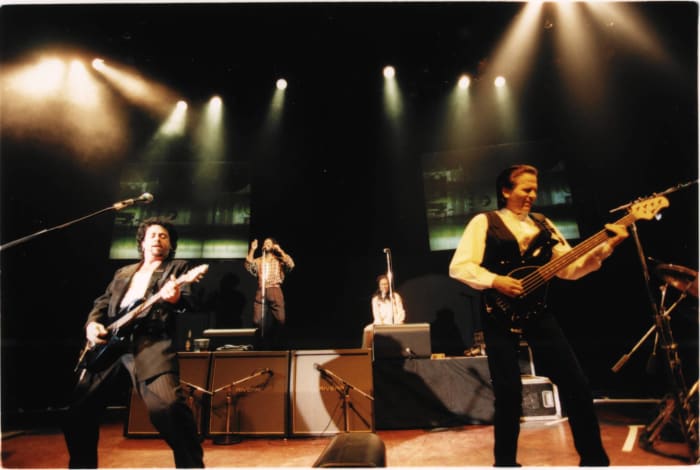
Toto was a group comprised of session musicians who had a knack for making catchy and deeply unadventurous rock songs. Always affable and pleasant, there was no danger or edge to Toto, but they were always, if anything, present. That is, of course, save for the Grammy-winning, supersized smash of an album that was "Toto IV." Anchored by their two biggest songs ("Rosanna" and "Africa," the opener and the closer, respectively) the rest of "Toto IV" still plays to their strengths, whether they are churning out piano-pop ripe with sax hooks ("Make Believe"), ambling Broadway pomp crossed with rock guitars ("Lovers in the Night") or some good-ol'-fashioned whiteboy synth-funk ("Waiting for Your Love"). While you can get everything you ever wanted from Toto from a single hits compilation, "Toto IV" was a perfect storm of MOR rock that hit at the right moment and still hits it right to this day.
Avril Lavigne - "Let Go" (2002)
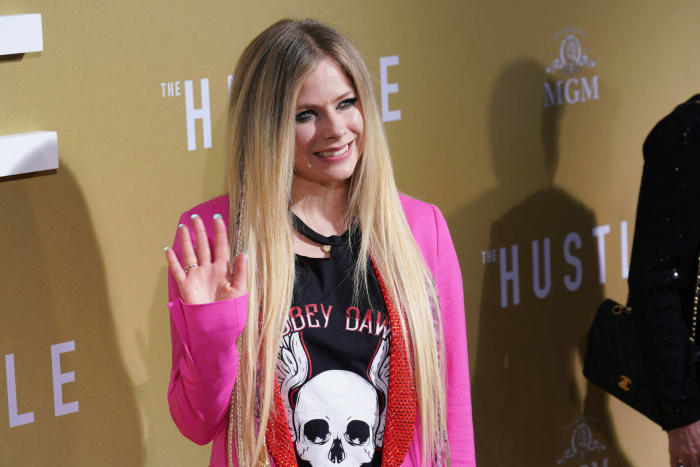
Avril Lavigne's bratty mall-punk aesthetic was surprisingly appropriate for the moment when she arrived because following the teen pop explosion of the late '90s, Avril felt like counter-programming. Bear in mind, she's still a pop artist whether she wants to admit it or not, but "Let Go," her debut album, touched on so many different styles and sounds that it felt like something approaching new. Opener "Losing Grip" likely introduced a nation of teenage girls to true and proper hard-edged rock, and for that we'll be eternally grateful. From the goofy pop-punk of "Sk8er Boi" to the sawing strings on the ballad "I'm with You" to the almost-anthem of "Anything but Ordinary," "Let Go" felt like a new kind of pop star had arrived and totally didn't care if you liked her or not. Then — Avril kept putting out more music. While she found chart-topping success with 2007's "The Best Damn Thing," Avril's subsequent output simply felt like variations of the sounds she set up on "Let Go," culminating with horrid latter-day singles like "Hello Kitty" and records aiming for a Christian-rock audience. As it stands, "Let Go" remains a generational touchstone for many.
Tenacious D - "Tenacious D" (2001)

There was a time and a place for Tenacious D. Initially a side project with a cult-like following before Jack Black became an in-demand Hollywood property, Tenacious D put out its first true-and-proper studio album in 2001, and it was crass, obvious — and remarkably fun. While songs like "Tribute" and "Wonderboy" are somewhat one-joke wonders, they're elevated by The Dust Brothers' (Beastie Boys, Beck) clever production, as sweeping strings during the hilarious "F&$% Her Gently" give the absurdity of the lyric that extra push it needs to land the joke. The interludes felt improvised but wisely curated, like a shambling of fragments that coalesced into a greater sonic whole. After that? "The Pick of Destiny" is a pretty mainstream stoner movie classic, but even D fans note how that soundtrack simply wasn't as explosive as the debut. Each new record since then, usually tied into a project or series or whatnot, has shown diminishing returns, as the times have changed but the humor has not. It's a bit disappointing, but for all the "don't quit your day job" jokes that could be made at Black's expense, there's at least one example of him absolutely nailing this comedy-song thing.
Backstreet Boys - "Millennium" (1999)

In the Great Teen Pop Explosion of the late '90s, a lot of those keyboard sounds and drum machines had a familiar ring to them, and it's because they all came from the same Swedish production house, run by genuine pop mastermind Max Martin, who is still writing No. 1 smashes to this day. His hands were all over the radio, writing hits for Britney, *NYSNC and, of course, BSB. Yet "Millennium" is his masterwork, co-writing and producing a majority of the record, giving us gargantuan smashes like "Larger Than Life," "Show Me the Meaning of Being Lonely" and, of course, "I Want It That Way." In fact, the record's weakest moments ("I Need You Tonight", "Spanish Eyes") are specifically the songs he didn't write. *NSYNC disbanded while BSB survived, but every record since has just been a Xerox of a Xerox of what "Millennium" set into motion.
Macy Gray - "The id" (2001)

Macy Gray's iconic 1999 smash, "I Try," announced the arrival of a distinct new voice to the neo-soul movement, and although Gray ended up winning a Grammy for her efforts, it's her funk-heavy follow-up that showed the world who Gray truly is as an artist: an absolute superfreak. Mixing spry dance beats with retro keyboards, horns sections, string sections and generous helpings of wah guitar, "The id" came in with zero expectations and blew the mind of everyone who heard it. Lightly psychedelic, it's hard to pick a single highlight, as the record must be experienced as a whole. Unfortunately, as this album didn't match her debut record's success, the rest of Gray's career has been trying to regain her industry foothold. Covering the entirety of a Stevie Wonder record? Doing a new rendition of "Walk This Way"? Collaborating with Velvet Revolver? While many view Macy Gray as a one-hit-wonder, the truth is she's a one-album wonder, and that one album just so happens to be particularly wondrous.
Nicki Minaj - "Pink Friday" (2010)
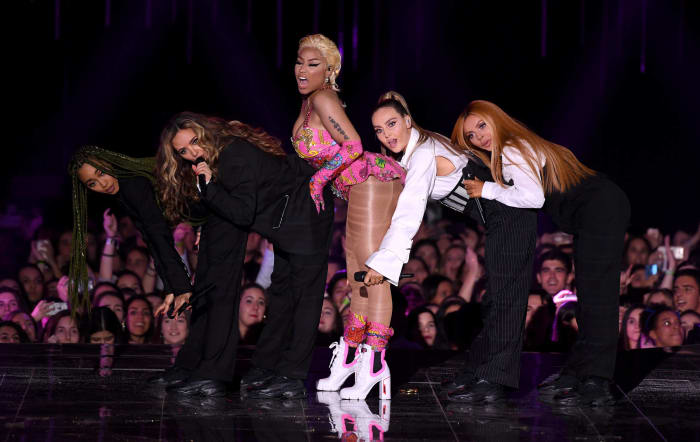
We'll just say it: The Nicki Minaj of 2010 was the best Nicki Minaj. This was "Monster" guest spot Nicki. This the year of guest verses like "Lil Freak," "My Chick Bad," "Bottoms Up" and even "The Creep." Yet most of all was the fact that 2010 was the year of "Pink Friday," her studio debut. Maybe it wasn't as Teflon strong as her run of feature spots, but Nicki rose up to meet her hype, giving us daring wordplay, wacky voices, Eminem faceoffs, a Drake flirtationship, and — best of all —the bonus track that became a delirious hit single in the form of "Super Bass." It was a striking debut and one that hinted at what was to come. The only problem? The lack of follow-up. Since "Pink Friday," a Nicki guest verse just never held the same excitement it once did, and her albums became increasingly hit-or-miss affairs, often aiming for easy pop crossovers like "Anaconda" or "Spaceships." At the very least, a listen to "Pink Friday" reminds us of all the promise she once held before she became an industry rapper and lost that spark that made her so special.
Robin Thicke - "The Evolution of Robin Thicke" (2006)

Long before he made his name with "Blurred Lines" or became (sigh) a guest judge on "The Masked Singer," Robin Thicke was aiming to be the sexiest name in blue-eyed soul and R&B. Sometimes his aims to be the most sensual man on radio got a little heavy-handed (his 2009 album was called "Sex Therapy: The Session"), but his sophomore effort, "The Evolution of Robin Thicke," hit a soul-pop sweet spot. Written and co-produced by Thicke himself, there's an earnestness to this album that never felt overworked: He was a laid-back, easy-going loverman who wanted to make an album perfect for a midday makeout session. "Lost Without U" had a sly acoustic touch, "Everything I Can't Have" cleverly used its sample of "Malambo No. 1" by Yma Sumac to funky effect, and the Pharrell production, "Wanna Love U Girl," had a mid-tempo pulse that helped break Thicke through on the radio. From here, Thicke went on to have highs ("Blurred Lines" topping the charts), lows (the controversy surrounding "Blurred Lines" actual lyrics, to say nothing of the songwriting lawsuit it got wrapped up in), and even lower lows (making an entire album to try and get his wife back after she left him).
The Darkness - "Permission to Land" (2003)

This record rips, plain and simple. Shamelessly borrowing from the likes of Led Zeppelin, AC/DC and every hair metal band you can think of, The Darkness' debut is a fully self-aware album that is both sending up its hard rock heroes while also paying tribute to them. It wouldn't work had the songs not been as tightly crafted as they are, and outside of the gimme, gimme single that was "I Believe in a Thing Called Love," "Growing on Me" ends up being a fantastic stadium anthem about getting an STD, "Love Is Only a Feeling" slows down the tempo but never loses any melodic slack — and the list goes on. Justin Hawkins' vocals are almost comically on-point, but no matter how you sum it up, "Permission to Land" is a record that hasn't aged a day. The only problem? The band took itself too seriously with the follow-up then took a seven-year break before hitting us with new music, proving over and over that The Darkness was really a one-album wonder.
Weezer - "The Blue Album" (1994)

This list of Great Albums by Bad Artists was written in conjunction with another list of Bad Albums by Great Artists, and when it came to Weezer, it was hard to know which list to put it on. On one hand, the band has more than one record that could be considered war crimes against the very concept of rock music (we're lookin' at you, "Raditude"). On the other hand, the quality of the output has been far outpaced by the sheer quantity of albums Weezer has been unleashing upon us, becoming a real career act while diluting what made this band so special to begin with. It's a shame, too, because while we can rhapsodize about its sophomore record, "Pinkerton," all day, it's the self-titled debut with the ocean-blue cover that we still can't get enough of. Sure, the anthems are all here ("Buddy Holly," "Say It Ain't So," "Undone — The Sweater Song"), but the album tracks all hold up. From the explosive opener "My Name is Jonas" to the closing groove of the tender-nerd anthem "Only in Dreams" to the pogo-mosh goofiness of "Surf Wax America," "The Blue Album" had memorable songs, lyrics that danced in the details and even a little bit of heart and insight. Weezer is regarded by some as pure pop sellouts, but no matter how many annoying new records it unleashes, "The Blue Album" will always endure.
Christopher Cross - "Christopher Cross" (1979)
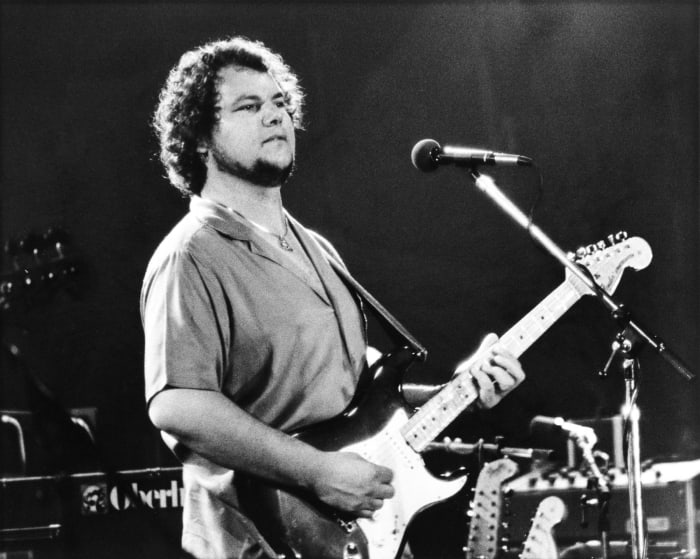
Prior to Billie Eilish sweeping "the big four" at the Grammy Awards (Record of the Year, Album of the Year, Song of the Year and Best New Artist), the titan of soft rock that was Christopher Cross burst onto the scene and pulled the same move during the 1980 ceremony. The lush and mushy "Sailing" was the big single from this new Texas-born songwriter, but songs like the proto yacht-rock number "Never Be the Same" and the feather-light duet with Valerie Carter, "Spinning," helped establish Cross' AM radio credentials — all of them contained on his eponymous debut. It was a flashpan moment, however, as outside of his Oscar-winning theme song for the movie "Arthur" (called, of course, "Arthur's Theme (Best That You Can Do)"), Cross just never hit in the same way again, whittling down his commercial fortunes to the point where his singles in the '90s were released only in Germany and Japan. He's able to poke fun at himself (he recorded a joke song for the show "30 Rock" in 2010), but after waning fortunes and no less than two different Christmas albums, Cross' legacy and influence lives and dies by the only album anyone knows him for.
Mandy Moore - "Amanda Leigh" (2009)

"If I had the money, I would give a refund to everyone who bought my first two albums," Mandy Moore once said, and despite some easy-going pop thrills, the now-Emmy-nominated actress's view of her early works is largely shared by the public at large, as she came in fairly late to the teen pop rollout. While she took some risks here and there (check out the wild production on 2001's "In My Pocket"), her true artistic emergence as a singer occurred at a time when no one was paying attention to her. "Amanda Leigh", her sixth album, is a collaboration with fantastic pop songwriter Mike Viola, who grants most of her sonic wishes by pushing her into a Fiona Apple-like direction. The result is wild, as the Jon Brion-ish "Pocket Philosopher," the forlorn backwoods lament "Merrimack River" and garage-pop nugget of a single that was "I Could Break Your Heart Any Day of the Week" proved that Moore, at the end of the day, was a truly great songwriter and performer. After the low sales for "Amanda Leigh," Moore focused on her acting career and held off from releasing another album for over a decade. We welcome her return, but no matter what the future holds, it'll be hard to top "Amanda Leigh," her best record by a mile.
Evan Sawdey is the Interviews Editor at PopMatters, and has written for the likes SPIN, Entertainment Weekly, and several other sites. He currently hosts the 'Worldwide Tea' International Drag Race podcast. He lives in Los Angeles with his wonderful husband and can be found on most socials @SawdEye.
More must-reads:
- 20 underrated 1970s bands that you should be listening to
- 25 truly terrible albums from otherwise terrific musicians
- 18 notable bands who are still touring without any original members
Customize Your Newsletter
 +
+
Get the latest news and rumors, customized to your favorite sports and teams. Emailed daily. Always free!
PRIVACY POLICY EDITORIAL POLICY CONTACT US
ABOUT YARDBARKER TERMS OF SERVICE
Use of this website (including any and all parts and
components) constitutes your acceptance of these
Terms of Service and Privacy Policy.
This site is for entertainment purposes only.
There is no gambling offered on this site.
Gambling Problem? Call 1-800-Gambler.


